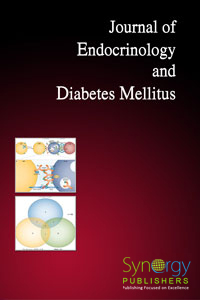
The Duodenal-Jejunal Bypass Liner (EndoBarrier®): An Endoscopic System for Glycemic Control Pages 85-95
Laura Bolte, Lisa Dicks and Winfried Keuthage
Specialized Practice for Diabetology and Nutritional Medicine, MedicalCenter at Clemenshospital, Münster, Germany
DOI: http://dx.doi.org/10.12970/2310-9971.2014.02.02.8
Abstract: The increasing prevalence of type 2 diabetes indicates a high demand for effective treatments. Current options include lifestyle intervention and antidiabetic medication, which have a limited effect especially on severe obesity and type 2 diabetes, and bariatric surgery, which can be effective but requires irreversible anatomical changes. The duodenal-jejunal bypass liner (EndoBarrier®) in which this work is concerned represents an interesting novel therapeutic approach based on the evidence that a bypass of the proximal small intestine leads to considerable improvements in the diabetic metabolic state. A 60-cm long impermeable fluoropolymer liner is placed endoscopically in the duodenum and proximal jejunum to create a duodenal-jejunal bypass without the need for surgical gastrojejunostomy. Clinical trials report rapid improvements in glycemic control and increased satiety which is mainly due to changes in gut hormone secretion. In this paper the efficacy and safety of the DJBL and its mechanism of action will be represented by giving a review of literature and reporting experiences from the treatment of 4 patients in our specialized practice for diabetes and nutritional medicine.
Keywords: Duodenal-jejunal exclusion, minimally invasive bariatric surgery, entero-insular axis, incretin effect, neuroendocrine regulation of energy and glucose homoeostasis. Read more

